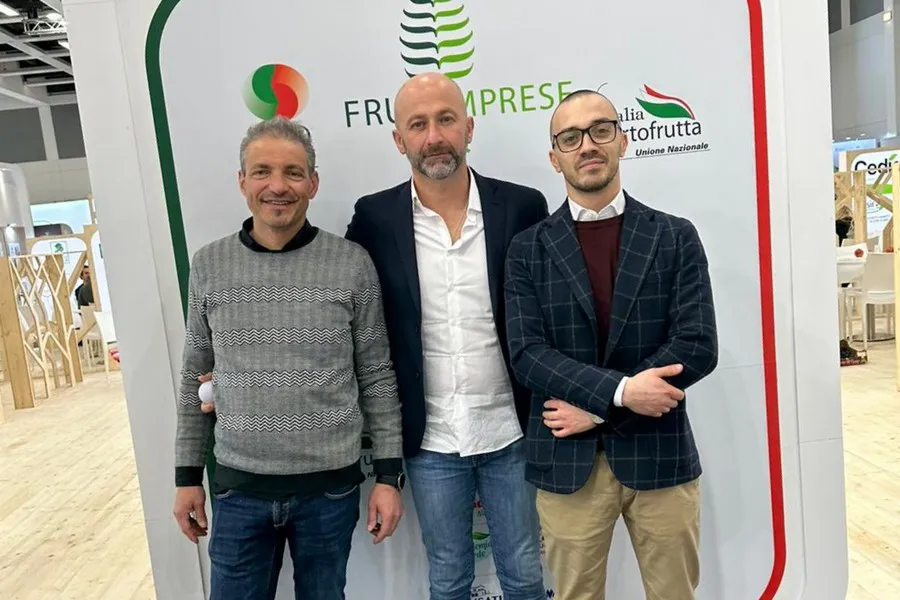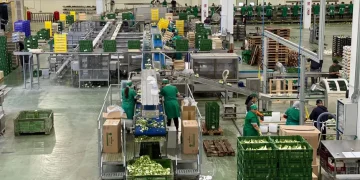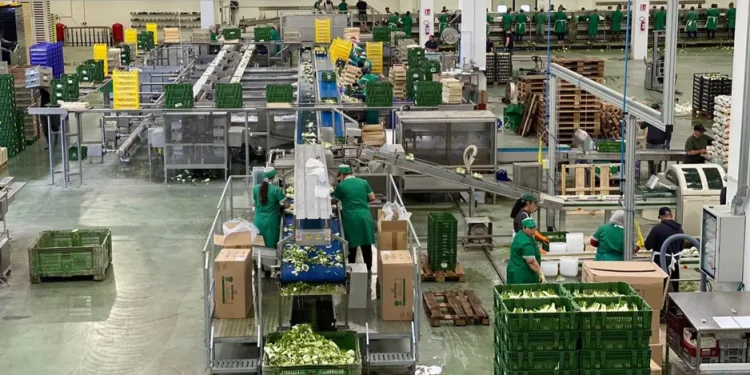Insights from Italy’s Leading Producer on Managing Market Fluctuations and Planning for Future Growth
In the Italian agricultural sector, Opoa Marsia stands out as a significant player in the cultivation and marketing of high-quality vegetables, including carrots, fennel, and potatoes. As the cooperative navigates the challenges of the current market conditions, Sales Manager Marco Di Cicco offers insights into their strategies for overcoming overproduction issues and preparing for a successful second half of the year.
Current Market Conditions: Overproduction and Price Fluctuations
The first half of the year has been challenging for the carrot market due to overproduction. According to Marco Di Cicco, Opoa Marsia has faced difficulties stemming from an oversupply of carrots from various Italian regions, such as Veneto, Lazio, and Abruzzo. This high supply, combined with stable demand, has led to decreasing prices for carrots.
“During the initial part of the season, the market has been oversaturated due to the availability of produce from Veneto, Lazio, and the initial quantities from Abruzzo,” Di Cicco explained. “Additionally, consumer demand has been slower than usual, which has further pressured the market and led to lower prices.”
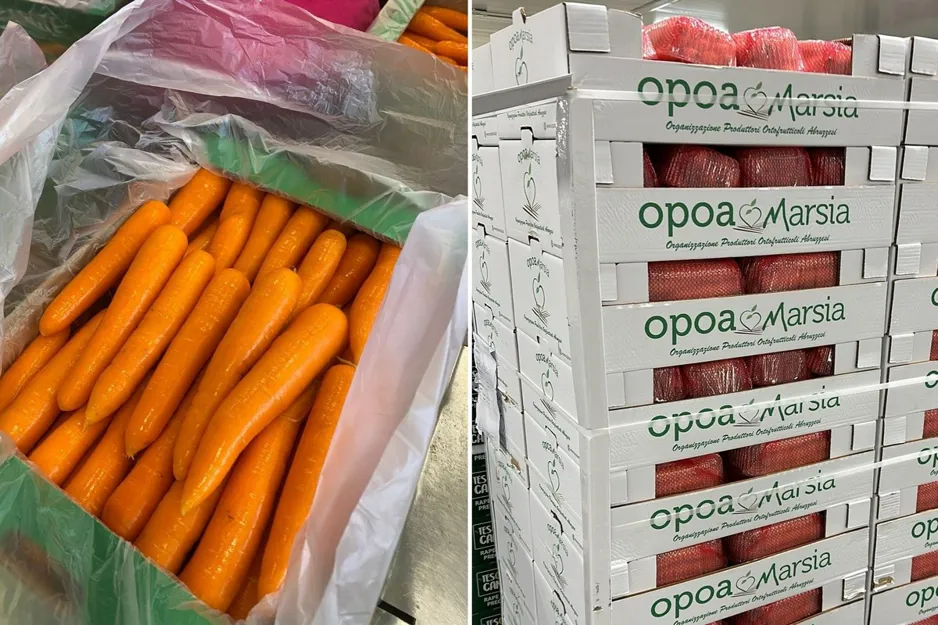
Strategic Responses to Market Challenges
Despite these challenges, Opoa Marsia remains optimistic about the second half of the year. Di Cicco emphasizes that while the current market conditions are difficult, the cooperative’s approach to crop management and market strategies is designed to adapt and thrive even in adverse situations.
- Anticipation of Reduced Supply from Other RegionsDi Cicco anticipates that as the year progresses, the supply of carrots from other regions, such as Germany, the Netherlands, Denmark, and the UK, will decrease. This reduction in external competition should help stabilize or even increase prices for Italian-grown carrots. “We are hopeful that the diminishing supply from these countries will allow us to manage and potentially improve our market position,” he said.
- Focus on Strategic Crop ProgrammingA significant aspect of Opoa Marsia’s strategy is its focus on effective crop programming. Di Cicco highlights that the cooperative plans approximately 80% of their production to avoid market saturation and manage supply levels more effectively. “We are aware of the lack of crop programming in the industry, which often leads to market imbalances,” Di Cicco noted. “Our approach involves meticulous planning to ensure that we maintain market stability and achieve better pricing.”
- Investments in Fennel Processing InfrastructureA major development for Opoa Marsia is the establishment of the largest fennel processing center in Europe. This state-of-the-art facility has been operational for just over a year and represents a significant investment in the cooperative’s future. The center enhances their ability to process and manage fennel production more efficiently. “The new facility has been instrumental in improving our processing capabilities and helping us understand where further improvements can be made,” Di Cicco explained.
- Leveraging Lessons from Fennel Production for Other CropsThe techniques and insights gained from fennel production are being applied to other crops, including carrots and potatoes. By refining their processes for fennel, Opoa Marsia is also enhancing their overall agricultural practices. “The success of our fennel processing center has provided valuable lessons that are being used to improve the cultivation and management of other crops,” Di Cicco added.
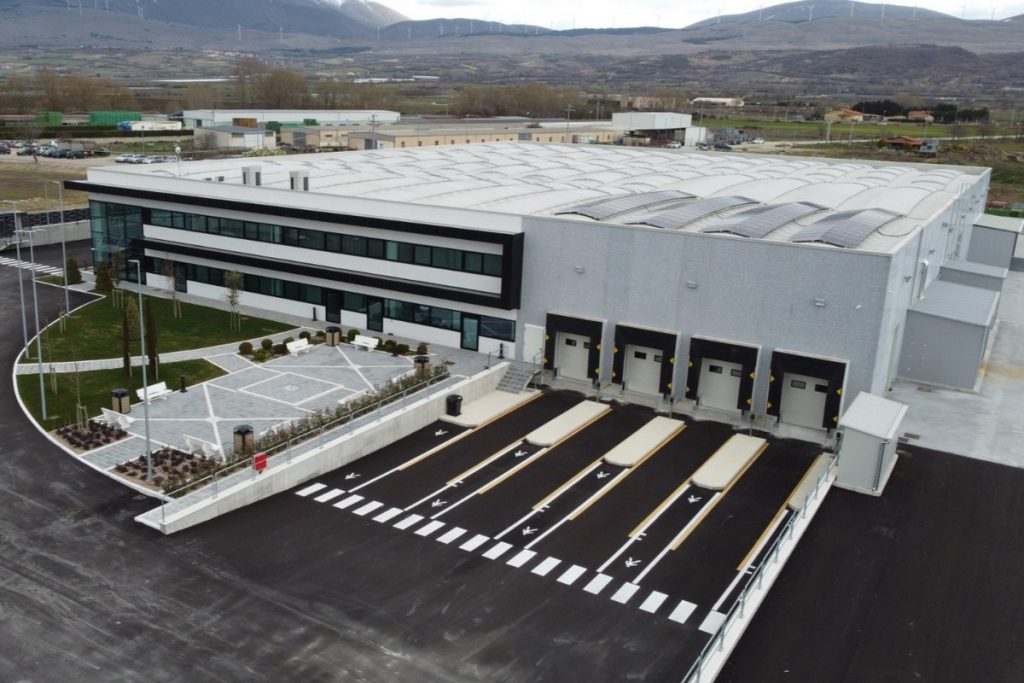
Looking Ahead: Growth and Future Prospects
Opoa Marsia’s growth over the past four years, where turnover increased from €30 million to €60 million while maintaining consistent volumes, exemplifies how effective crop management and cost control can lead to financial success. This growth demonstrates that strategic planning and careful management can result in higher average prices and better financial outcomes.
As the cooperative moves into the second half of the year, they remain committed to their strategies and optimistic about future developments. The lessons learned from both the current challenges and their successful investments will shape their approach moving forward.
Conclusion
Opoa Marsia’s experience during the first half of the year underscores the importance of strategic crop management, market awareness, and investment in infrastructure. Despite facing challenges such as overproduction and fluctuating prices, the cooperative’s proactive measures and optimistic outlook for the second half of the year highlight their resilience and forward-thinking approach. For those in the agricultural sector, Opoa Marsia’s strategies offer valuable insights into managing market fluctuations and planning for future growth.
